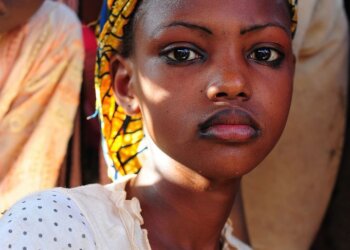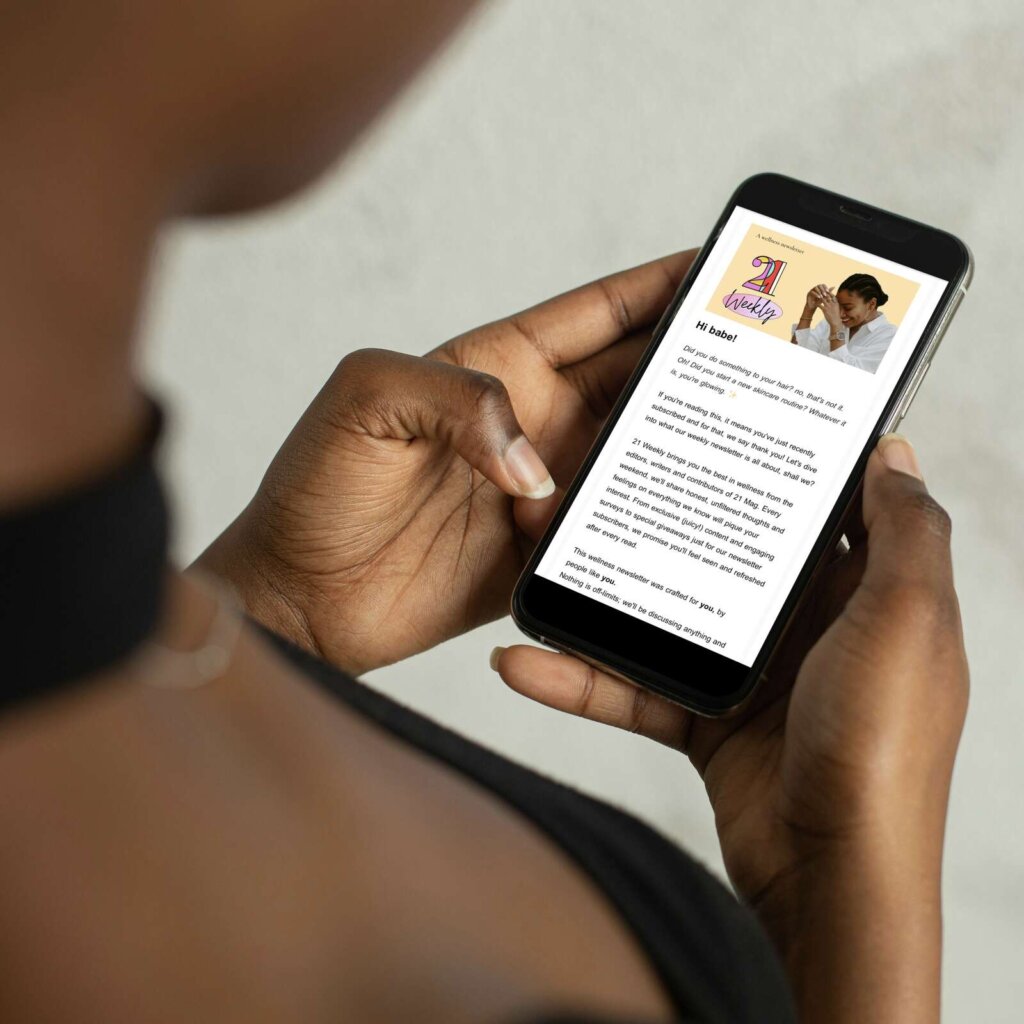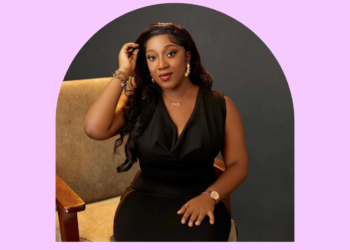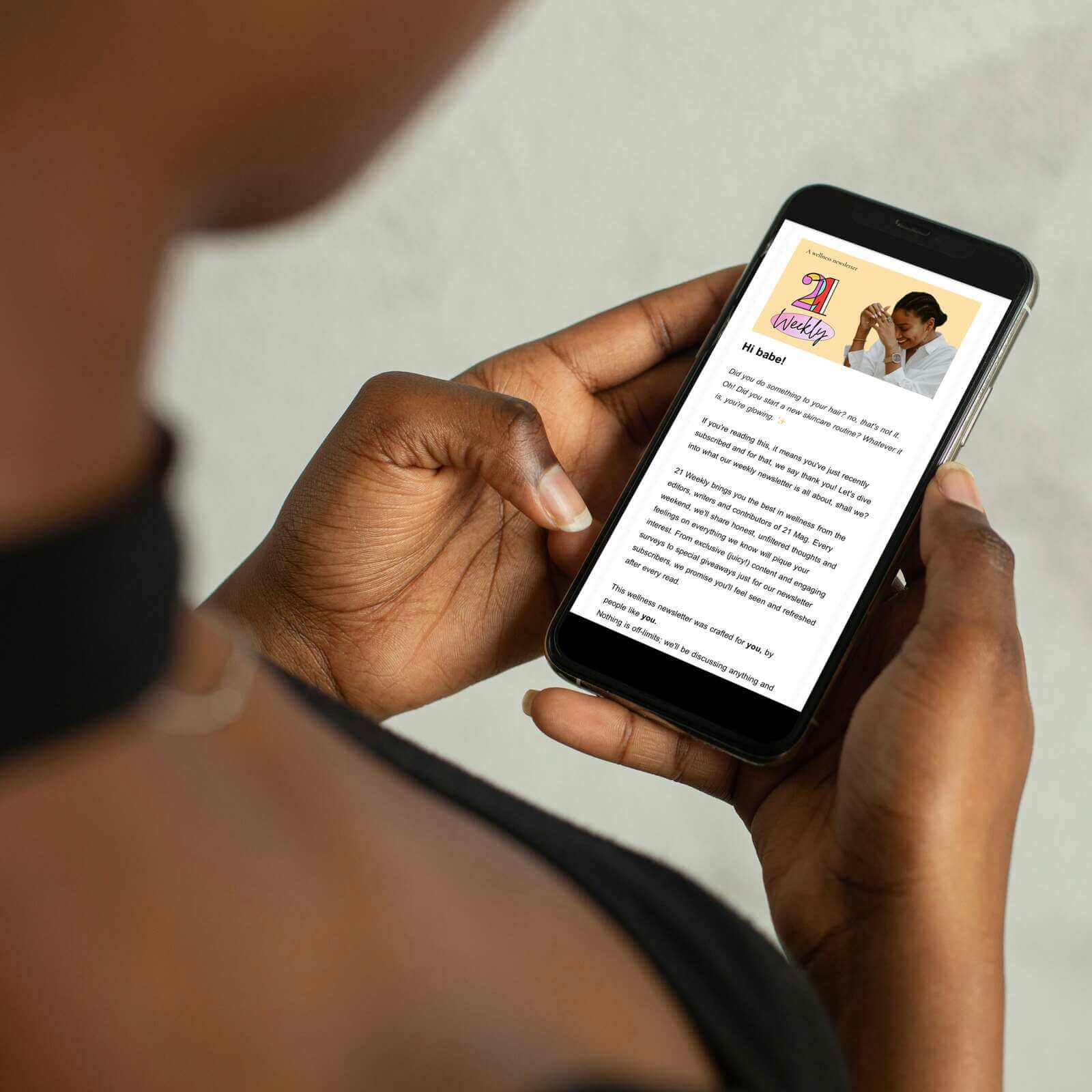No products in the cart.
On Grief and Loss: “I Lost Both My Parents in a Span of Six Months”
For many of us, Saturday, September 3rd, 2022, was a business-as-usual weekend. Unbeknownst to 21-year-old Vera, the text she got from her sister on the sweltering afternoon of that day while cracking jokes with her nursing student colleagues during her clinical posting would mark the day she came face-to-face with grief, and life as she knows it would change forever.
“I got a text from my sister, Vera pray, Daddy is not breathing, Vera writes in From an Orphan’s Point of View, her personal essay, which she shares with me a day before we hold an extended conversation on what it means to be orphaned. When her mom and siblings tried to conceal the tragic news of her father’s passing, she journeyed back to her home in Owerri, fervently praying that her suspicions weren’t true.
Sadly, it was. Vera’s father had died.
Upon knowing, she describes the pain she feels as “sharp- piercing through her heart”. This young woman was inconsolable.
As Vera, her mom and siblings tried to forge ahead, attempting to ignore the conspicuous absence in a home that, for a long time, had known no sorrow of that massive scale, six months later, death visited again.
“It was the first day of my mom’s diagnosis of dialysis. As the medical personnel in my family, I spoke with my sister, explaining the little I could about the procedure”, Vera tells me. “A few hours after the call, I was expecting to hear some feedback from her about the success of the dialysis. But she kept busying my call. When she finally picked up, she spoke in the same tone she used when Daddy died. She said, “Vera, please let me call you back; also, is there any way you could leave school and come home?”
Immediately, Vera ran to her church’s campus. Holding hands with her worship team, praying, crying, and calling down heaven. At the end of a long and intense prayer session, her aunty called her and said, “I’m sure you know what has happened; you and your siblings need to come together at this moment and hold each other’s hands”
“Aunty, where is mummy? How is she now?” Vera asked, eyes blinded with tears.
Her aunty replied, “What do you mean where mummy is? We are packing her things from the hospital. The ambulance will be here to carry her to the mortuary.”
A familiar pain, hurt and sorrow overtook her. That was Vera’s literal rude awakening to life as an orphan.
Vera, now 22 years old, is a multitude of things. She’s a nursing student in her penultimate year, and she’s also a superb creative and content writer—something I can testify to after being privy to some of her most vulnerable feelings penned down in the personal essay she generously shared with me. When I speak to her on a cool Tuesday evening, she tells me she’s working on a Christian clothing line, “Simeon_salvado”, which she plans to launch on Instagram by March. I’m impressed by how she has carried herself in spite of the tragedy that rocked her life.
Among other things, we talk about how she stays grounded in the midst of her pain, the wicked relatives she encountered when her father passed, and the similarities between her personal essay and Chimamanda Adichie’s tribute to her late father, “Notes on Grief.” It’s almost like these two women, with completely different backgrounds and experiences, were feeling the same things. Yet, Vera hasn’t read Chimamanda’s essay.

Hi Vera, Starting Off as Lightly as this Subject Permits, What are Your Favourite Memories of Your Parents?
This is actually a very difficult question to answer because there are so many of them, but I’ll try to pick one. It was back in 2020, during the peak of the Covid-19 pandemic. We were all locked in at home to avoid getting the virus, and it was as though we were getting to know ourselves better but on a deeper level. We were a close-knit family, but we got closer that period. It was then that I truly understood what it meant to have the actual “love of your life”. I’ll catch my dad, on numerous occasions, gisting with my mum in the kitchen while she cooked. He wasn’t the best cook, but he spent quality time listening to all the stories she had to tell. My mom was Chief when it came to storytelling. She never stopped talking about how they met.
That same year, during my mom’s birthday, we invited a few family friends, and my dad got her the most thoughtful gift ever—the very first perfume he bought her when they were still courting. I honestly don’t know how he found it. It must cost a fortune by now. It showed just how intentional he was about her. To others who may not know the sentimental meaning of that perfume, it may come off as a mere gift, but to her, it meant the whole world.
What a Guy!
He really was! Their love was beautiful. I hope I get to experience that and more with my future partner.
After He died, What Happened Next?
They say you can never understand death until the shoe fits, and I couldn’t agree more. And you know what hurts the most? Life has to and will go on instantly. The few weeks leading to the burial of Daddy were not the easiest emotionally, financially, and all around. We heard all sorts of things from his so-called siblings. Of course, they’d blame his death on my mummy—that Mbaise witch that wouldn’t let them eat their brother’s money has finally killed him.
The struggle and quest for property began. They said we had to declare off my dad’s properties. I’m glad my brother read law, and although he wasn’t a graduate then, he was actively backing up my mother in areas she may not have understood when it came to properties. They even came with weird traditions of how they had to inspect my late dad’s body before he was buried, but we are Christians, and my dad served God till his death, so it’s only right he be buried by the church.
My mother was strong-willed, outspoken and stern. It’s difficult to intimidate her, and they tried so hard and failed. Also, My mum was great at networking, she always knew who to call when a situation arose. She had very wonderful friends from different works of life, so if they had moved really mad, they would’ve actually collected haha.
Did You Ever See Such Nasty Behavior Coming?
It’s honestly shameful how they behaved, but I can’t say I didn’t see it coming, they are a greedy lot and it showed!
In Igbo culture, it is commonplace for the kin of a deceased male to subject his widow to inhumane practices. Your mother, in resisting such wicked attempts, sounds like a force to reckon with. I’m so sorry you had to lose her too.
Lol, it’s fine. If I got a dollar for every time someone told me “sorry” in the past 2 years, I think all my financial problems would be half solved, especially with our current naira-dollar wahala. But regardless, I know it’s coming from a place of love. I have made peace with my situation, and even though I am not where I want to be yet mentally, it’s a work in progress. There’s no straight road when it comes to healing from this kind of pain.
In What Ways Did their Deaths Immediately Affect You?
When I lost my dad, I suffered from depression. I’m surprised I was able to somehow get myself back. It was so bad, that I stopped talking to people, and began having social anxiety. My guard was so up I saw everybody in a bad light, as though they were trying to harm me.
I pride myself on being an excellent student, but when I lost my dad, I lost the zeal to read, especially because of the depression. But, because I was the only one in a private school amongst all my siblings, I wasn’t going to bring shame and fail. I think I got a 3.9 GPA that semester, that’s the lowest GPA I have gotten since my 100level, but at least I didn’t have a carryover and that was really my concern.
The reality that hits you after you’ve laid both your parents to rest is crazy. There are some conversations that you can no longer relate to. Moments where you feel like sinking into the ground while others talk about how their dads drove them to certain places. The unending bills you never knew existed simply because your parents would never put you through the behind-the-scenes of what they had to suffer to pay the school fees, provide food, shelter, and everything in between.
After 2 weeks of laying mummy to rest, the friends and well-wishers we thought we could bank on slowly began to disappear. “You guys should take care of yourselves okay? We’ll keep in touch with you” they said. But where are they now? Never picking up the calls simply because they believed we’d ask for financial support.
What Will You Say is the Greatest Reality Check Grief Has Revealed to You?
Hmm…I can never ever see them again, no matter what lengths I go to. They would never come back and sincerely, it breaks my heart every passing day.
I noticed so many parallels between your personal essay and Chimamanda Adichie’s “Notes on Grief”, published in the New Yorker after the death of her father. In the latter piece, Ms. Adichie says,
“I am changed. A new voice is pushing itself out of my writing, full of the closeness I feel to death, the awareness of my own mortality, so finely threaded, so acute. A new urgency. An impermanence in the air. I must write everything now, because who knows how long I have?”
Chimamanda Adichie
In Yours, You Briefly Describe the New-Found Relationship you Have With Your Own Mortality, Do You Care to Expantiate More On it?
The fact that I lost my parents within a short period made me so scared. I became so afraid of living that I became too careful. Every time someone was leaving the house, my mind wouldn’t be at rest until they came back home safely. I was scared that I could lose any of my siblings at any moment. This was how my panic attacks started. It got so bad that sometimes I actually need to sit down so I don’t lose control. I was scared of the inevitable happening again.
I want to experience life without being scared of dying.
How are You Taking Care of Yourself After All You’ve Been Through?
Sincerely, if I wasn’t a Christian, I most likely would’ve offed myself. But the Holy Spirit gives me comfort. He’s ever ready, always listening to my problems and always providing solutions. For context, there was a moment when I felt this overwhelming sorrow. It was so bad I couldn’t pray, and I lost a lot of weight. I just needed a hug from my mum, who is no longer here. So one morning, I sat in the shower and cried, asking God for peace. There’s a scripture that says “The Holy Spirit maketh intercessions on our behalf. That instant, I could feel his move. I dressed up and went about my day and I just felt a comforting hand in my spirit, as though a burden had been lifted. I don’t think there’s any other way to handle the pain than through the grace of God. And his grace is ever sufficient for me.
I always take breathers when neccesary, especially for my panic attacks. If I feel like I’m moving too fast, I take a pause. When I’m feeling stressed out or overwhlemed, I take 3-4 days breaks and do something that makes me happy, outside my usual routine. Thankfully, slow and steady and with the help of a few intentional friends and my current boyfriend, I have been able to regain myself.
In “Notes on Grief” Ms. Adichie also says,
“Grief is a cruel kind of education. You learn how ungentle mourning can be, how full of anger. You learn how glib condolences can feel. You learn how much grief is about language, the failure of language and the grasping for language…We don’t know how we will grieve until we grieve.”
Can You Put Words to Your Grief?
“We don’t know how we will grieve until we grieve” and I honestly can’t stress it enough. I don’t think I have the right words to explain how I feel, but it’s really not something I’d wish on anybody, no matter the kind of bad blood we have. It’s a dark place—very similar to a house with no doors or windows, just you and your mind fighting on who engulfs the other. The mental pain is so much that it starts to affect you physically.
The hardest thing about losing a loved one is that you don’t lose the memories, too. It lives with you, in you. And if you’re not careful, you could lose yourself in the process of trying to relive and remember the moments you had with this person.
Your Words Have Undone Me.
I hope you’re able to view life from a different perspective from now. We’re all living on borrowed time, so make the most out of it while you’re here.
Any Words for Anyone Out there Grieving?
Regardless of the pain felt, there’s light at the end of the tunnel. But you can’t find it by sitting and dwelling so long in the euphoria of the memories you once had. It takes a different kind of strength and will to find this light. But when there is a will, there’s most definitely a way. It does get better, and there’s so much life ahead of you. You just have to move.
















